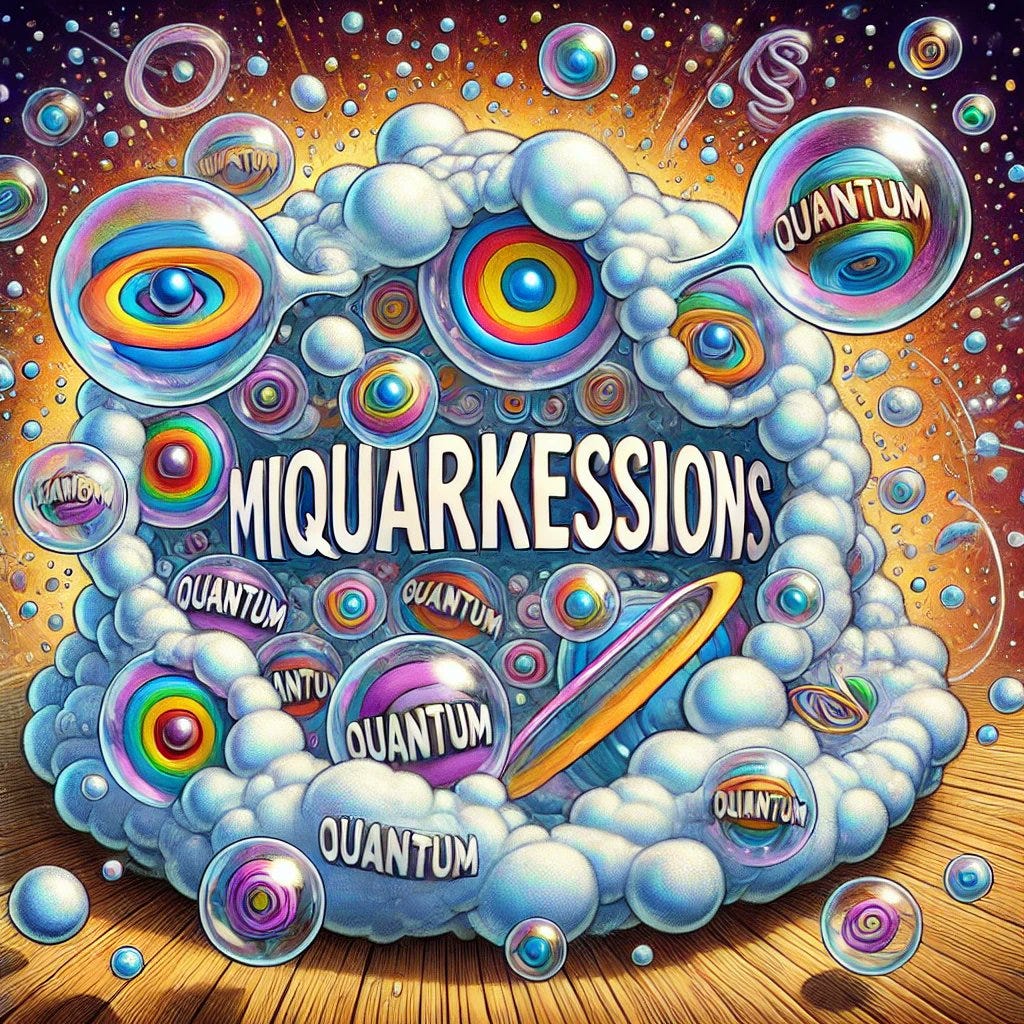How Dare They Not Denounce Me as a Racist!
To some, criticizing microaggression research makes you a racist
What am I, chopped liver? I have now published a full-throated critique of the weak
”science”1 of microaggressions plus another paper which expands on that critique while also critically evaluating research on implicit bias, stereotype threat, and racial and gender discrimination (paper is in press at the forthcoming Handbook of Stereotyping, Prejudice, and Discrimination; manuscript version can be found here).
“So what’s the problem?” you ask. This is the problem:
In this paper, you can find the table below of “racist” psychologists and their “representative racist belief.” A lot could be said about the whole list, and I’d agree there is some racism there, maybe a lot, but let’s put that aside for now. I want to focus on the last entry. It is absolutely true that Scott Lilienfeld has published a trenchant critique of microaggression research titled, Microaggressions: Strong Claims, Inadequate Evidence.
The idea that any critique of any work on microaggressions should be denounced (and by implication, dismissed) for racism is not just ridiculous on its face, it is profoundly anti-science, a point I return to at the end of this essay. I will also get to more on Lilienfeld in a minute but I want to start with me.

SO HAVE I (published critiques of microaggression research)! And I know at least one of the authors knows about at least one of my critiques. So WTF? How dare they not denounce me! I feel excluded.
My Publications and Blogs Critiquing Microagression Research
The Dubious Science of Microaggressions. Unsafe Science post.
Cantu, E. & Jussim, L (2022). Microaggressions, questionable science, and free speech. Texas Law Review.
Jussim, L., Yanovsky, S., Careem, A., Honeycutt, N. & Finkelstein, D. (In press). A critical analysis of scientifically pervasive claims about stereotypes, prejudice, and discrimination. To appear in T. Nelson (Editor), Handbook of Stereotyping, Prejudice, and Discrimination, third edition. New York: Routledge.
Links are provided; if interested, you should read the original full articles. Microaggressions are, supposedly, subtle racial (or other demographic) insults, and they are routinely claimed to be unconscious and pervasive. Here is an incomplete synposis of my critiques of the “scholarship” in this area:
Microaggressions are acts of perpetrators. The “science” of microaggressions almost never assesses actual acts by actual or potential perpetrators. Instead, it focuses almost entirely on people’s perceptions of microaggressions. This is like assessing global warming by assessing people’s perceptions of global warming, or assessing whether an election has been illegally stolen by asking people for their perceptions of whether the election was stolen. Put differently, in any other context in life it would be obvious as Hell that assessing perceptions of microaggressions, even if interesting for some reasons, has nothing to do with assessing actual microaggressions.
Microaggressions are routinely described as pervasive, but even the literature focusing on perceptions finds that most people say they do not experience them very often.
Microaggressions are supposedly unconscious, at least much of the time. I have yet to find a single study even attempting to assess whether microaggressions are committed consciously or unconsciously — but this is a logical inevitably from point 1. If they only study perceptions of microaggressions and not the actions of potential perpetrators, they cannot determine anything at all about perpetrators. You can’t learn anything about the speed of airplanes by pointing radar guns at cars. Furthermore, if you have been following the slow, relentless walkback of major claims about “implicit bias” then you already have some sense of how hard it is to demonstrate that some behavior is “unconscious.”
There is little to no basis for academics and administrators to responsibly accept commonly propagated lists of microaggressions as reflecting actual microaggressions. For example, microaggression advocates have referred to questions and statements such as, “Where are you from?” and “I believe the most qualified person should get the job, regardless of race” as microaggressions. Whereas it is possible that there are some circumstances under which these generally innocuous questions/statements are insulting, microaggression advocates have never provided a shred of evidence addressing this.
Microaggressions are supposedly caused by racism. If A causes B, then: 1. A and B are two different variables; and 2. One need to produce some sort of evidence (say, via an experiment) that A causes B. Except for a very dubious study (we critically evaluated it in detail in Cantu & Jussim, linked above) that the authors themselves titled “Preliminary” (i.e., no one should take seriously pending replication by independent researchers), there is no evidence that even bears on whether microaggressions are caused by racism.
Microaggression rhetoric has contributed to a moral panic over racism that has inspired useless trainings and bias reporting systems that are themselves serious threats to free speech and even social science (more on this later).
Enough about me…
Back to Lilienfeld
According to the Williams et al article that denounced Lilienfeld, but not me, he is a racist because he claimed that “racial microaggressions are unproven and probably not harmful.” Let’s revisit Lilienfeld’s brilliant critique of microaggression research:
First, let’s review some of what he actually wrote, as opposed to Williams et al’s mischaracterization of what he wrote:
Racial and cultural insensitivities persist in contemporary America, including college campuses. Nor should there be any doubt that prejudice at times manifests itself in subtle and indirect ways that have until recently received short shrift in psychological research.
The principal goal of this manuscript is to provide a conceptual and methodological analysis of the MRP, with a particular focus on the extent to which scientific evidence supports its key presuppositions.
So what were his main arguments?
Microaggressions have not been “operationalized with sufficient clarity and consensus to afford rigorous scientific investigation”
Supposed microaggressions “identified” by researchers have not been shown to be interpreted negatively by most or all minority group members.
Supposed microaggressions supposedly reflect implicit (sic) prejudicial and aggressive motives but this has never been demonstrated.
Supposed microaggressions can be assessed exclusively on the basis of respondents’ subjective reports, which is dubious at best and absurd at worst.
Supposed microaggressions are routinely claimed to cause adverse effects on recipients’ mental health, but the evidence is always linking perceptions of microaggressions to mental health, which creates a serious chicken and egg problem (i.e., maybe microaggressions cause deterioration of mental health, but maybe mental health issues causes people to perceive more microaggressions).
He also concluded with this:
As in all domains of psychological science, humility should be the watchword. I encourage microaggression researchers to continue their scholarly inquiries while substantially tempering their assertions, especially those concerning (a) the causal association between microaggressions and adverse mental health and (b) the presumed effectiveness of microaggression intervention efforts. The MRP [microaggression research project] has generated a plethora of theoretically and socially significant questions that merit thoughtful examination in coming decades. But it is not close to being ready for widespread real-world application.
The Scientifically Dysfunctional Nature of “If You Criticize Microaggression Research You are a Racist”
The Williams et al article is not merely unscientific, it is antiscientific in ways reminiscent of Soviet Lysenkoism. All scientific claims have to be subject to critical evaluation and skeptical vetting by other scientists and by the wider public. Organized skepticism is one of Merton’s four norms of science — norms that, in his view, justified giving science a special place of credibility in public discourse. The core idea is that scientific claims that successfully withstand intense scrutiny and even withering criticisms are far more likely to actually be true than those that have not faced such scrutiny or criticism. However, science only deserves that special place of credibility if it actually earns it, by encouraging intense criticism and scrutiny of its claims.
Denouncing anyone who criticizes microaggression research as a racist is profoundly anti-scientific. And that, gentle reader, is why being denounced by the likes of Williams et al. is tantamount to a badge of honor for anyone aspiring to be a rigorous scientist.
Footnotes
Weak “science” of microaggressions. I really want to call it “pseudoscience” but it is better than, say, astrology or alien visitations. It is much closer to junk science. Wikipedia provides this definition of junk science, and all three standards fit the “science” of microaggressions:
"science done to establish a preconceived notion—not to test the notion, which is what proper science tries to do, but to establish it regardless of whether or not it would hold up to real testing."[6]
"opinion posing as empirical evidence, or through evidence of questionable warrant, based on inadequate scientific methodology."
"methodologically sloppy research conducted to advance some extrascientific agenda or to prevail in litigation."








Once upon a time, it was common knowledge that giving people the benefit of the doubt had a positive impact on relationships, and that assuming positive intent and believing the best of everyone until proven otherwise was a key to happiness and mental health. The concept of microaggressions is the opposite of this. Assuming the worst, being suspicious of everyone and quick to take offense, and analyzing everything anyone does or says and interpreting it in the worst way possible so you can convince yourself that everyone is against you will lead to unhappiness and mental unwellness.
Microaggressions deserve microsympathy. At most.